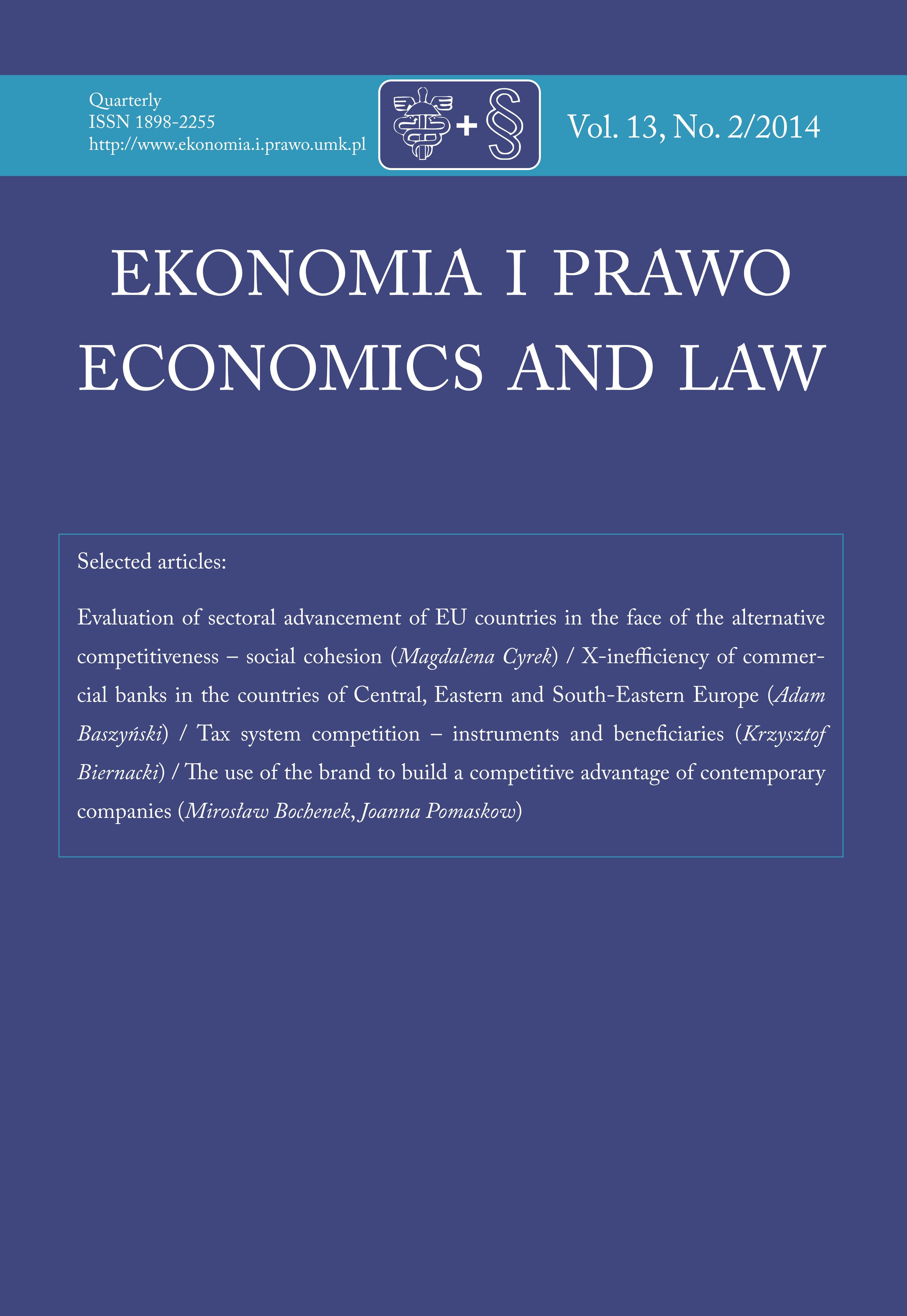INSTITUTIONS AS ENABLING CONSTRAINTS. A NOTE ON SOCIAL NORMS, SOCIAL CHANGE AND ECONOMIC DEVELOPMENT
DOI:
https://doi.org/10.12775/EiP.2014.023Keywords
institutions, institutional change, social order, economic evolutionAbstract
Both formal and informal institutions are usually perceived as constraints that structure and limit human behavior. This is understandable when we use them as an addition to neoclassical economics and as an attempt to overcome its deficiencies. Yet institutions also enable behavior which would otherwise probably be inexistent. This paper aims to highlight the enabling feature of institutions and briefly recognizes selected consequences of it. We argue (1) that because institutional arrangements cause specific distribution results thus the process of institutional change is virtually infinite and does not have to lead to socially optimal effects and (2) that informal institutions (social norms) have today important explanatory and creative power for the existing social order and economic development. We conclude by suggesting that more interdisciplinary approach to economics may contribute to our better understanding of socioeconomic reality and indicate promising threads of current research.
References
Acemoglu D., Robinson J.A., Paths of Economic and Political Development, [in:] B.R. Weingast, D.A. Wittman (eds.), The Oxford Handbook of Political Economy, Ox-ford University Press, Oxford 2006.
Aoki M., Toward a Comparative Institutional Analysis, MIT Press, Cambridge 2001.
Czech S., System sprawowania władzy a wzrost i rozwój gospodarczy, [in:] S. Swadźba (ed.), Systemowe uwarunkowania wzrostu i rozwoju gospodarczego. Zagadnienia teoretyczne, Uniwersytet Ekonomiczny w Katowicach, Katowice 2013.
Greif A., Institutions and the Path to the Modern Economy, Cambridge University Press, Cambridge 2006.
Grenfell M. (ed.), Pierre Bourdieu. Key Concepts, Acumen, Durham 2008.
Groenewegen J., Spithoven A., van den Berg A., Institutional Economics, Palgrave Macmillan, Basingstoke 2010.
Hodgson G.M., What Are Institutions?, „Journal of Economic Issues”, Vol. 40, No. 1/2006.
Kasper W., Streit M.E., Boettke P.J., Institutional Economics. Property, Competition, Policies, Edward Elgar, Cheltenham 2012.
Mahoney J., Thelen K., A Theory of Gradual Institutional Change, [in:] J. Mahoney, K. Thelen (eds.), Explaining Institutional Change. Ambiguity, Agency and Power, Cambridge University Press, Cambridge 2010.
North D.C., Institutions, „Journal of Economic Perspectives”, Vol. 5, No. 1/1991.
North, D.C., Institutional Change: A Framework of Analysis, „Economic History”, 1994, http://128.118.178.162/eps/eh/papers/9412/9412001.pdf (02.10.2013).
Rose D.C., The Moral Foundation of Economic Behavior, Oxford University Press, Oxford 2011.
Sandel M.J., What Money Can’t Buy: The Moral Limits of Markets, FSG, New York 2012.
Schmidt V.A., Speaking of Change: Why Discourse Is Key to the Dynamics of Policy Transformation, „Critical Policy Studies”, Vol. 5, No. 2/2011.
Stiglitz J.E., Development Thinking at the Millennium, [in:] Proceedings from the An-nual Bank Conference on Development Economics 2000, World Bank, Washington 2001.
Voigt S., How (Not) to Measure Institutions, „Journal of Institutional Economics”, Vol. 9, No. 1/2013, http://dx.doi.org/10.1017/s1744137412000148.
Ząbkowicz A., Współczesna ekonomia instytucjonalna wobec głównego nurtu ekonomii, „Ekonomista”, No. 6/2003.
Downloads
Published
How to Cite
Issue
Section
Stats
Number of views and downloads: 862
Number of citations: 0
